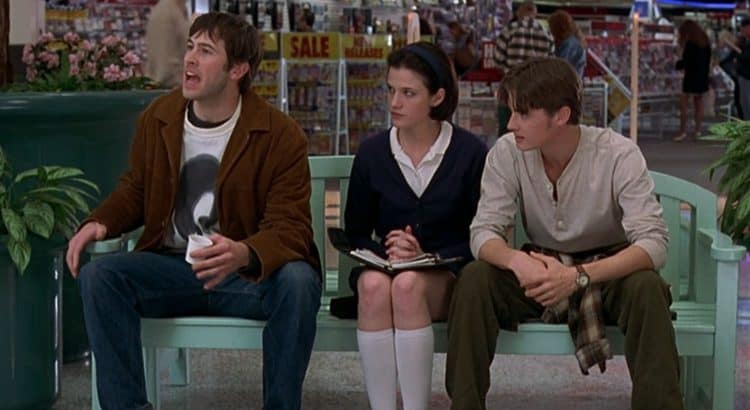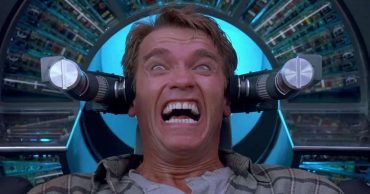
There are still a lot of us that can remember going to malls to hang out, to window shop, and basically just to get together with friends or spend a day wishing we had enough money in our pocket to make a run on our favorite stores. Sarah Moran of Screenrant and Kevin Smith are both correct though when stating that malls were already on their way out as far back as the 90s since with the advent of the internet and the ability of people to buy online and find cheaper, more efficient prices on certain items, malls have become just about obsolete. In a sense they’re slowly becoming massive mausoleums that are only filled to capacity when the holidays approach or when Black Friday drives down the prices on various items so much that people can’t help but flock to the stores to try and get as much as they can for one reason or another. Why anyone would need to buy more than one toaster or TV when they don’t need them is beyond me, but hey, to each their own. In the upcoming Mallrats 2, or Twilight of the Mallrats as Smith has titled his movie, he’s planning on delving into the idea that malls are on their way out, but he’s also going to be adding in the impact that the coronavirus has had since it was another heavy blow to the malls when social distancing came about. Kevin Smith actually had this to say as per Sarah Moran:
“I was working on Twilight of the Mallrats, the Mallrats 2 script, and so I had just read last night articles about the retail apocalypse, where 2020 was going to be the death knell for a bunch of stores anyway. But the pandemic has escalated that, made it worse, and we’re about see a lot big box stores, big name stores that you and I have known for most of our lives just go away forever. That means massive vacancies in malls, so they’re predicting the implosion, the entire implosion of malls–I mean, they were already teetering–but the entire implosion of malls across America. So, as a guy who’s writing a movie set in a mall, I’m like, ‘Well that’s useful information for my line of work.’ So I had to start writing the pandemic into the movie because clearly this is going to be remembered for all time. It’s not like, ‘Oh, why would you make a–that’s so topical, the coronavirus happened last year.’ You’ll still be hearing corona-related stories and plotlines and drops for the next five to ten years the same way post-September 11th, that was everywhere.”
That’s no joke really, it’s very likely that we’ll be talking about the pandemic for some time to come since it’s been a life-changing event that a lot of people won’t soon forget, if not out of necessity than simply because it’s disrupted life on such a huge scale that the entire world has felt the pinch. But Twilight of the Mallrats is bound to show not just the decline of the average mall, but likely the dissolution of the businesses as they’re eventually forced to go entirely online and get rid of employees left and right. Mary Hanbury of Business Insider has something to say about this topic. Meeting places at this point are all online, as congregating in groups is no longer a thing at this time and even trying is bound to bring the ire of many individuals and possibly a stiff fine depending on the state one resides in. There’s no doubt that Smith has had a lot of spare time to focus on the script for Mallrats 2 and Clerks 3, which is hard to believe since Clerks 2 ended on a note that might have been perfect for the end of the story. At any rate, the movie will no doubt paint a pretty sad and pathetic picture of a mall that’s been reduced to only a handful of customers that are out and about since they can’t find their items anywhere else, or because like some of us they’re bound to stick with the old ways until the bitter end.
It’s easy to wonder if, following this pandemic, people might actually revert back to the old ways in another generation or two since the mall is an institution that a lot of people, no matter how they might gripe about it, have seen as normal and even acceptable for much of their lives. It’s hard to say right now if malls will ever come back since the specialized items and experience they offer for the average visitor are no longer able to draw people in as they used to, especially in the wake of the coronavirus hitting the US. If malls do survive, which sounds unlikely, they might become more akin to modern museums with various gift shops here and there rather than the mecca’s of consumerism they’ve been for so long.
 Follow Us
Follow Us





